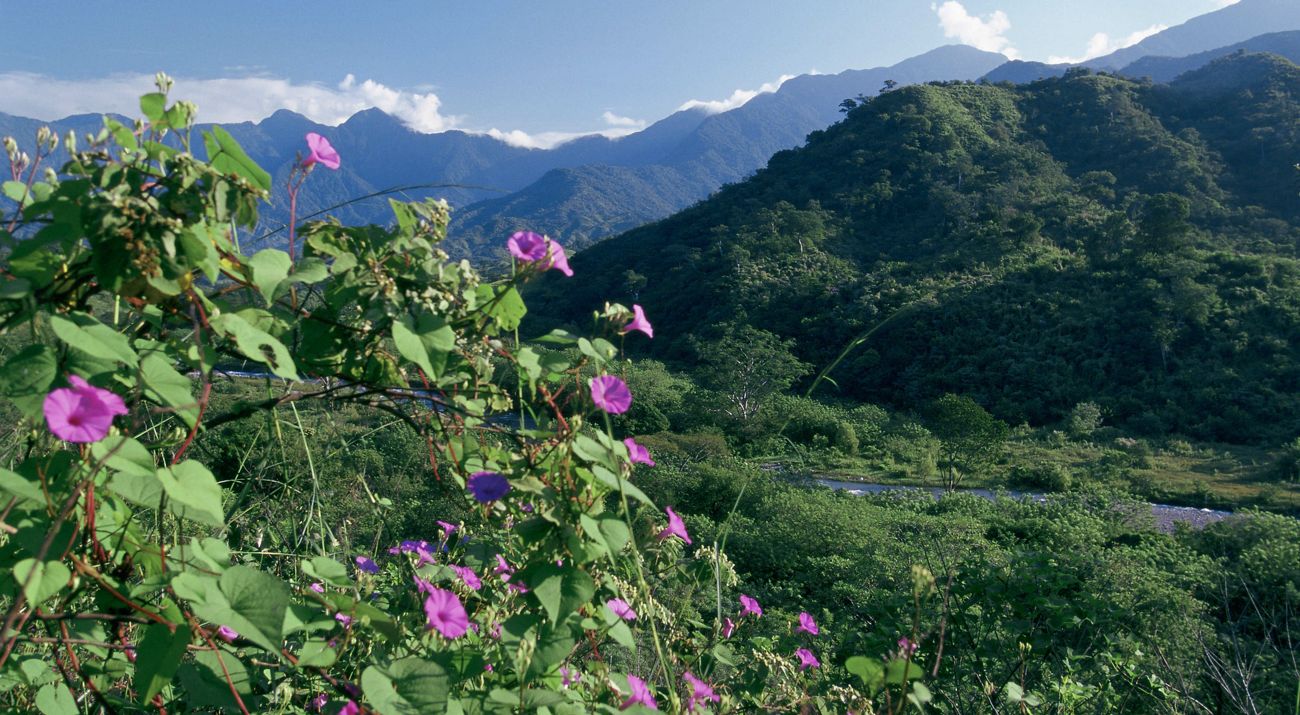Description
The majestic forests spanning the mountain ranges of Chiapas in southern Mexico, Guatemala and Honduras have provided sustenance for people and wildlife for centuries. The region has abundant natural resources, is biologically diverse and culturally rich. It is home to dozens of distinct indigenous groups, whose livelihoods are tightly intertwined with nature. The Mesoamerican Forest Corridor provides innumerable benefits for people—clean water, fuel wood, timber, protection from natural disasters and, increasingly, economic opportunities through ecotourism. This unique region contains broadleaf cloud forest, tropical pine forests, and temperate forests. In Guatemala the chain of volcanic cones includes “islands of biodiversity” with high levels of species found nowhere else on earth.
The Threats
Land conversion is the principal threat in the Mesoamerican Forest Corridor. Clearing land for extensive cattle ranches and subsistence crops is the primary driver of deforestation in the region, leaving little protection against soil erosion, hurricanes or torrential rainstorms common during the rainy season. The urgency to protect the forests and life-giving watersheds of the region has become clear in recent years as fires and floods threaten the livelihoods of rural populations, damage infrastructure and imperil water resources. The tremendous biological wealth of the Mesoamerican Forest Corridors contrasts starkly with the severe rural poverty found in many local communities. Therefore, the economic benefits of conservation are an important factor for these key stakeholder groups.
Increasing social and natural resiliency
The Nature Conservancy (TNC) seeks to reduce the vulnerability to climate change and increase natural and social resiliency in this region focusing on:
- Building capacity and awareness
- Establishing communally-run tree nurseries
- Restoring and reforesting critically degraded areas
- Establishing conservation agreements with owners of forests which primary function is to protect soil and water
- Promoting sustainable forestry, agro-forestry and sustainable agricultural production practices
These actions are tested with pilot projects in selected communities, in order to develop comprehensive models that can later be replicated in other communities. The demonstration and promotion of these practices is often done in conjunction with the development of incentives-based financial mechanisms that promote voluntary conservation of forested areas in private and communal lands.
Examples of Our Work
Chiapas
TNC along with its partners is working to implement silvo-pastoral grazing. With this technique, farmers plant carefully chosen trees in their pastures. The trees help enrich soil which in turn produces high quality food for cattle even during dry season. Trees also contribute to lessen dry climate and break the force of the rain, so that more of it filters into the ground help dissipate floods. A complement to enhance the resilency of these communities is the promotion of foliage storage methods to help feed cattle during the dry season.
Watch this video to learn more!
"The forest is the life insurance policy of communities and countries. It is the only thing that will enable society to safeguard its future." Alejandro Hernández Yáñez, TNC's Mesoamerican Forest Coordinator, was born and raised in Chiapas. He has dedicated his life to breaking the vicious cycle climate change is having on his home.
Guatemala
Together with our partners we have been working to reduce the vulnerability in the Sierra Madre Highlands by reforesting and protecting key areas and watersheds. A total of two million trees have been planted in 4,800 acres, mainly to restore forests, but also to recover shade-grown coffee farms, which were damaged by recent storms.
